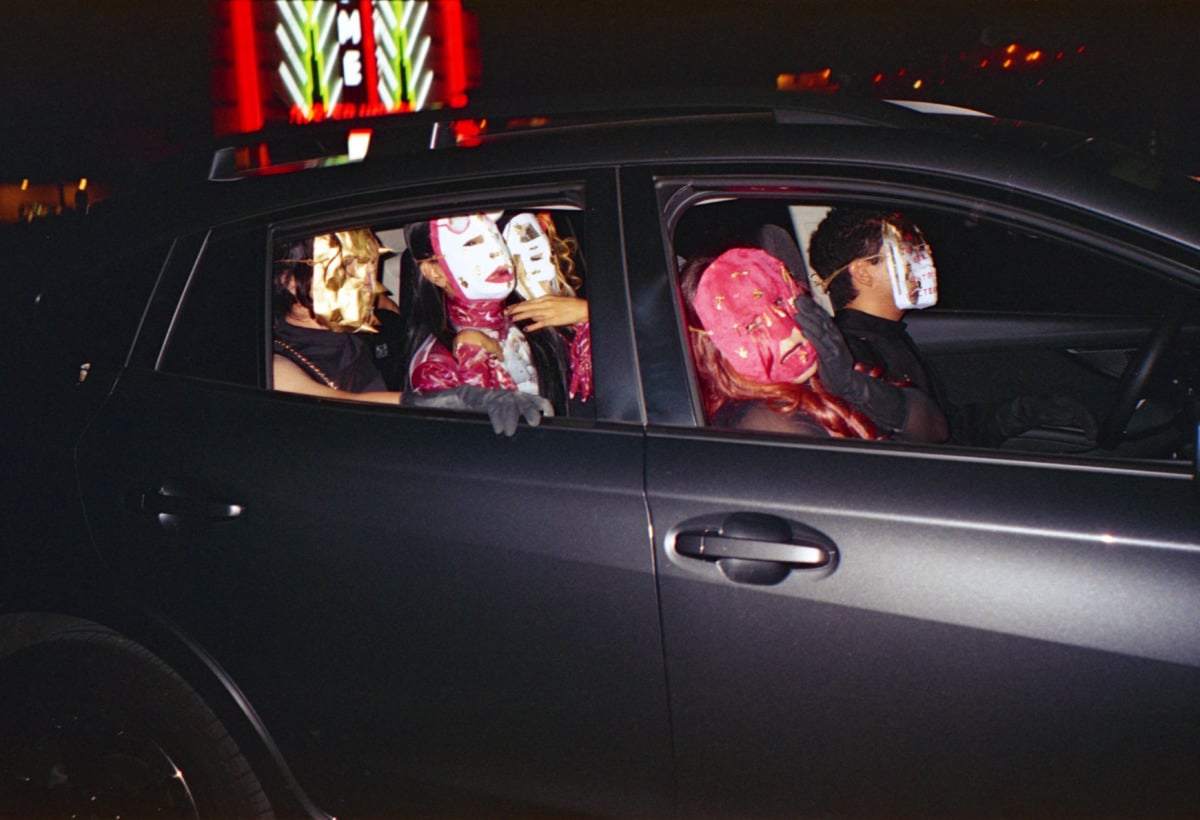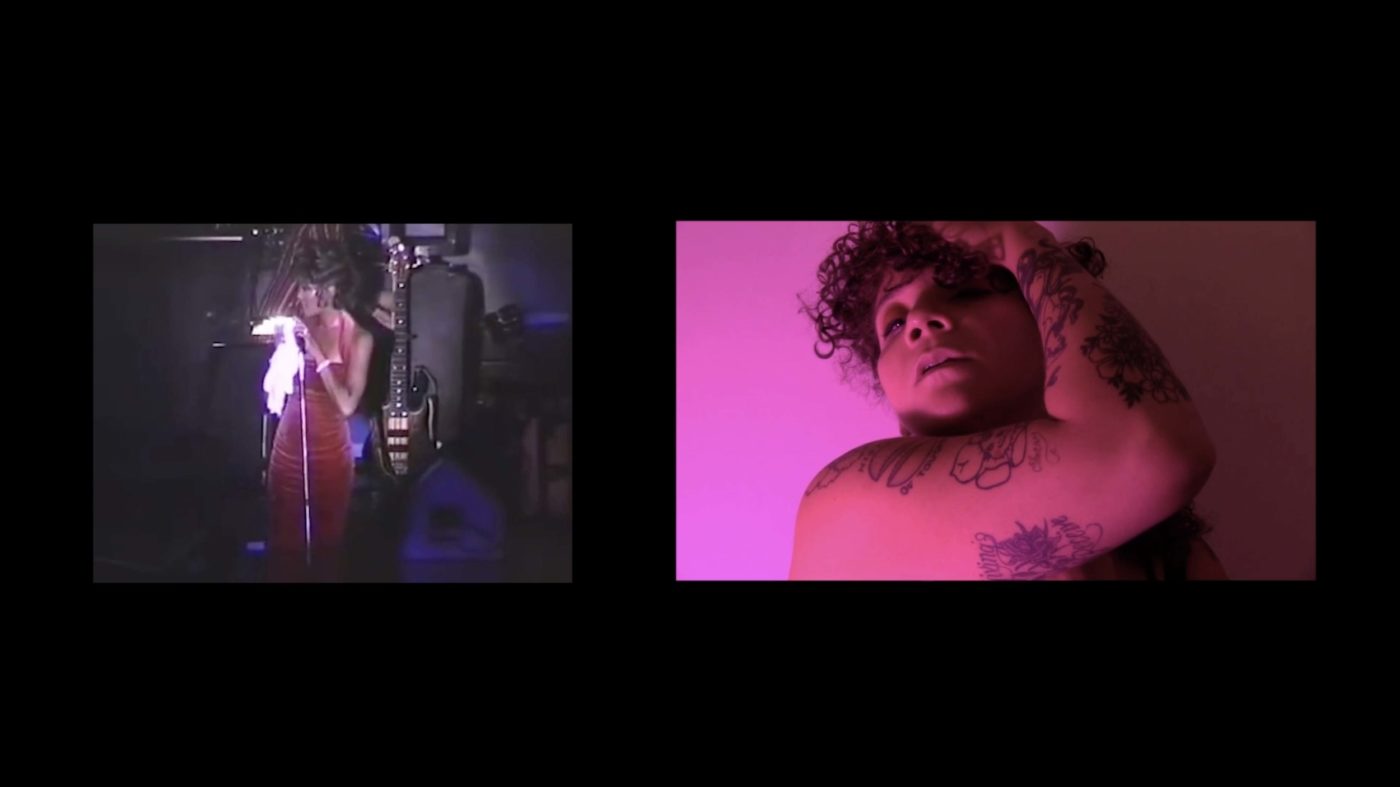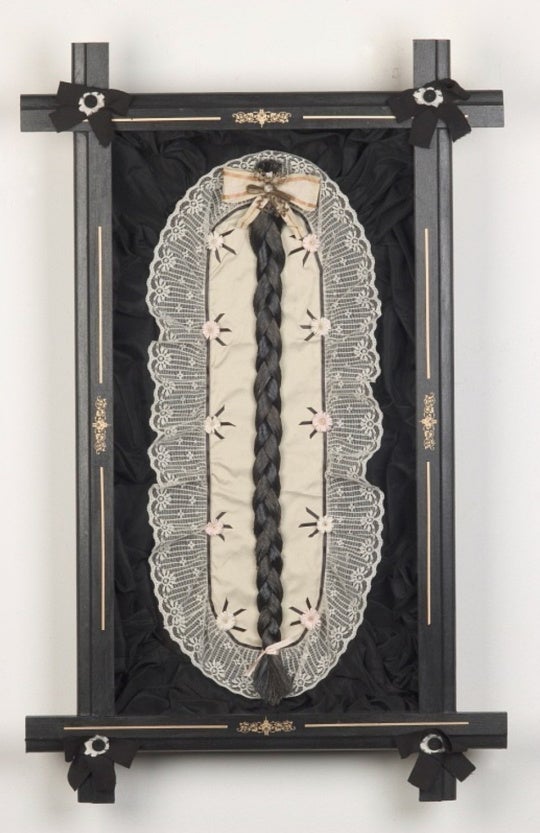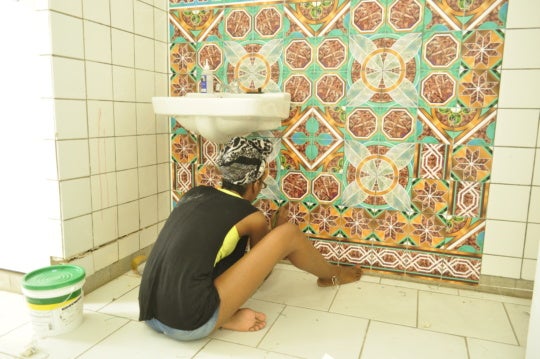Filled with melodrama and comedic satire, Kalup Linzy’s video-based performances connect soap operas to the artist’s upbringing in a close-knit rural community in Stuckey, Florida. Figures and personal observations percolate in the works—from drug-induced violence to interpersonal gossip and betrayal—the artist, himself, stars as lead characters.
Linzy implements drag in order to examine a range of performance tropes, including the stereotype of the high maintenance female lead to the scandalous nature of the “other” woman in a romantic triage. Comedic effect is added in the larger-than-life acting of Linzy alongside contrasting voice overs made by the artist for characters he does not play. Voices and the mouthed expressions don’t line up, an imperfection that Linzy notes as intentional. “When things are a little off, it gives a certain type of texture, a certain type of feel. It creates layers and tension. If you tell an interesting story, then it will make people forget about certain production values,” says the artist. Sexuality and explorations of personal queerness are key themes in the works.
This film is part of Burnaway’s partnership with Art21, an organization that produces award-winning documentary films about the world’s most groundbreaking contemporary artists. The collaboration intends to deepen an understanding of visual art that hails from the South today.
Related Content

IN CONVERSATION: WITHOUT ARCHITECTURE AND INVISIBLE HISTORIES
It was always suspicious to me that so many of the most famous narratives around gay liberation and gay rights in the United States occurred either in New York City or San Francisco. Surely, there were also gay people in New Orleans, in Nashville, in Orlando, doing the work of gay liberation, living their queer lives in communion with others. Without diving down a Wikipedia hole, the only major queer events I could name in the South were Bowers v. Hardwick, which in 1986 upheld Georgia’s sodomy laws, and Lawrence v. Texas, with the former being considered one of the worst decisions in U.S. Supreme Court history, and the latter undoing its damage in 2003. Beyond these instances, there hasn’t been much of an acknowledged queer history for the region. Two artist projects, one based in Texas and the other in Alabama, have addressed this gap by presenting queer histories, intimacies, archives, and lives across the American South with tenderness, care, and rage.

I WILL ALWAYS LOVE YOU
What gives Whitney’s version of “I Will Always Love You” so much power is “the break” that Fred Moten describes in his 2003 book about the poetics of Black music. “The break” is the rupture where time, space, and the deep pain of the Black American experience produce a moment of originality that transcends the listening experience. I relate to that break, and the incredible nature of that performance, but it still confuses me that the source material came from Dolly Parton. Whitney was marketed as a squeaky-clean pop star who could bridge Black and white markets, and what led to her public demise was her sexuality, excess, and Blackness. Dolly’s steady rise to the top has been propelled by a veiled sexuality that moves stealthily through rhinestones, lip gloss, and double entendre. What protects Dolly is her whiteness.




